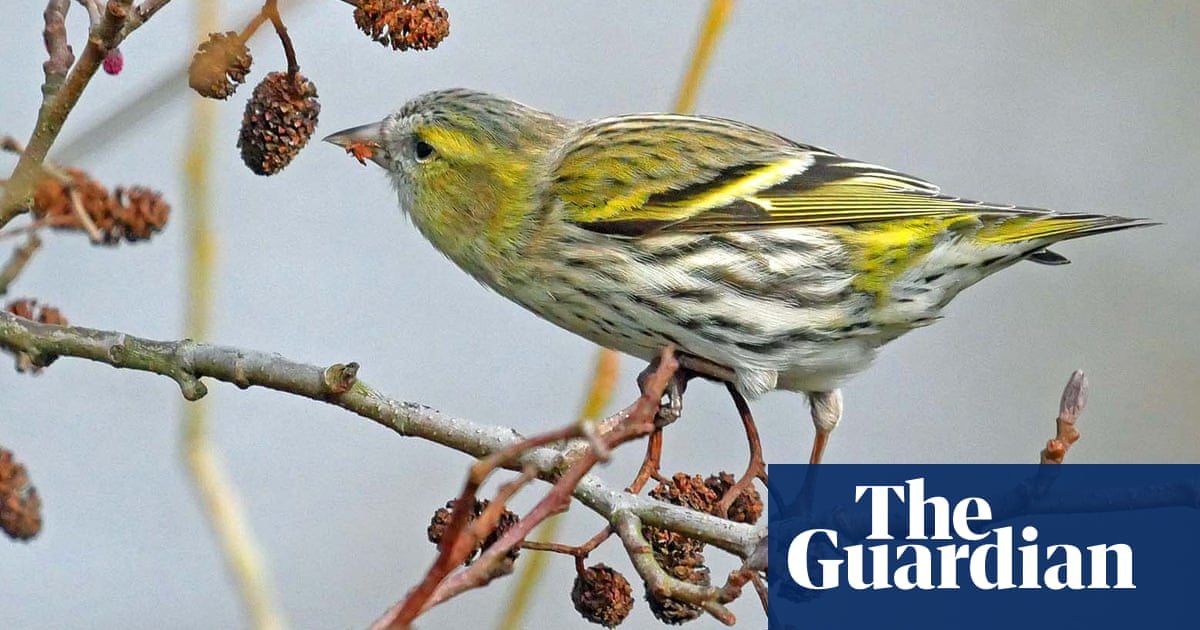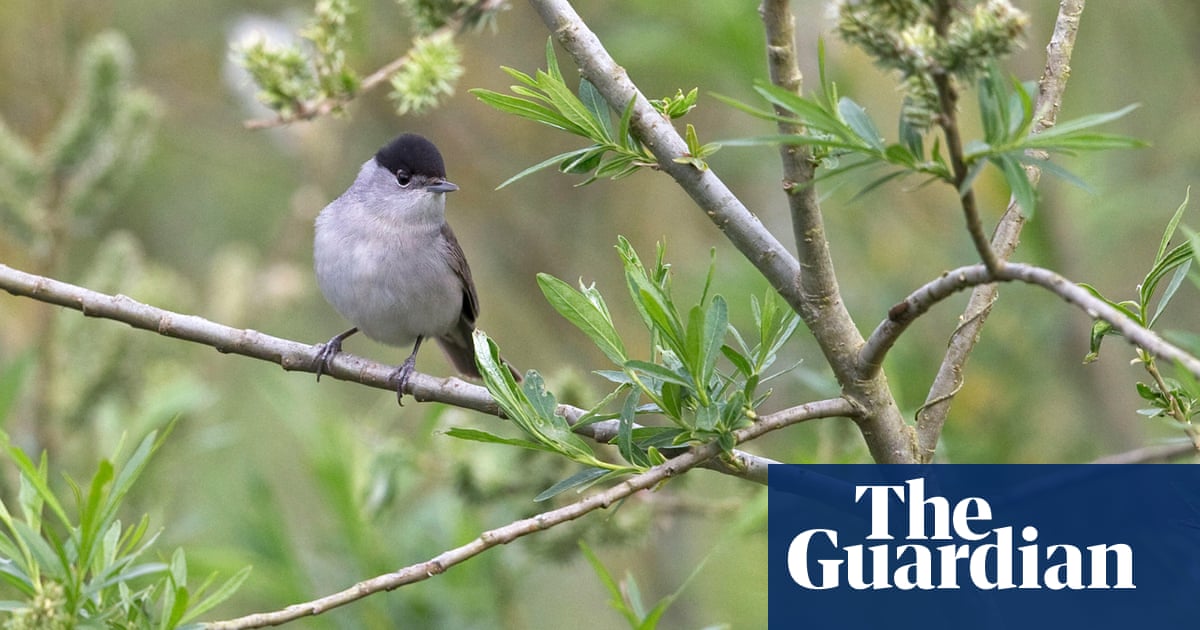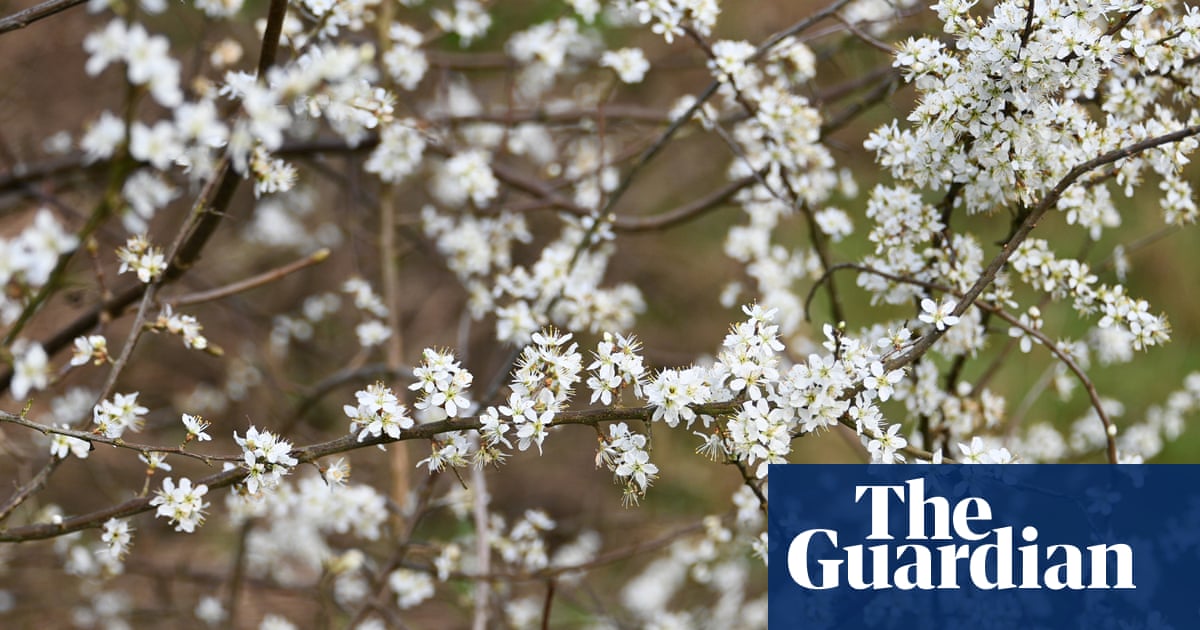
ith a forecast of showers and then heavy rain, I was out early, determined to win something from the day before it dissolved. The rain held off, but it still felt unusually cold on the domed crown of Big Moor. That did not stop the larks. As I climbed away from the road, and the hiss of traffic faded, I soon realised that I was surrounded by lark song, not falling from the air but rising from the earth, from a chorus of beings invisible in the gloom, as though I were fording a torrent of music.
Thanks to Vaughan Williams, there is a predisposition to imagine larks forever ascending, but they will sing just as gloriously from the ground as they do from the sky. “The larks carry their tongues to the last atom,” as Ted Hughes put it, and they will carry those tongues as gladly perched on a rock as they will chirruping from the heavens.
Nearing a half-collapsed wall, I finally spotted one and as I did it took off, burly and pale, then swerved away and lifted into the sky, where it began singing again. I turned along the wall, following a narrow path, and cocked an ear to bring the lark with me, and so arrived at the Hurkling Stone. “Hurkling” is a lovely word, possibly Old Norse, meaning to squat or crouch, which is what this stone does, an unremarkable thing in a lovely spot on the crest of the moor with sudden views into neighbouring valleys.
The Hurkling Stone remains the meeting point of three parish boundaries, their initials carved messily into the rock. Thousands of sheep once spent the summer here. Men from each village would walk the bounds of their parish, a legal assertion of grazing rights to discourage jealous neighbours. All that is gone now, the sheep too, mostly. Near my boot, a rowan sapling was pushing up into the damp air, reasserting a more ancient pattern than the shepherds who met at this stone, the men who cleared the forest, and in doing so brought lark song with them.












